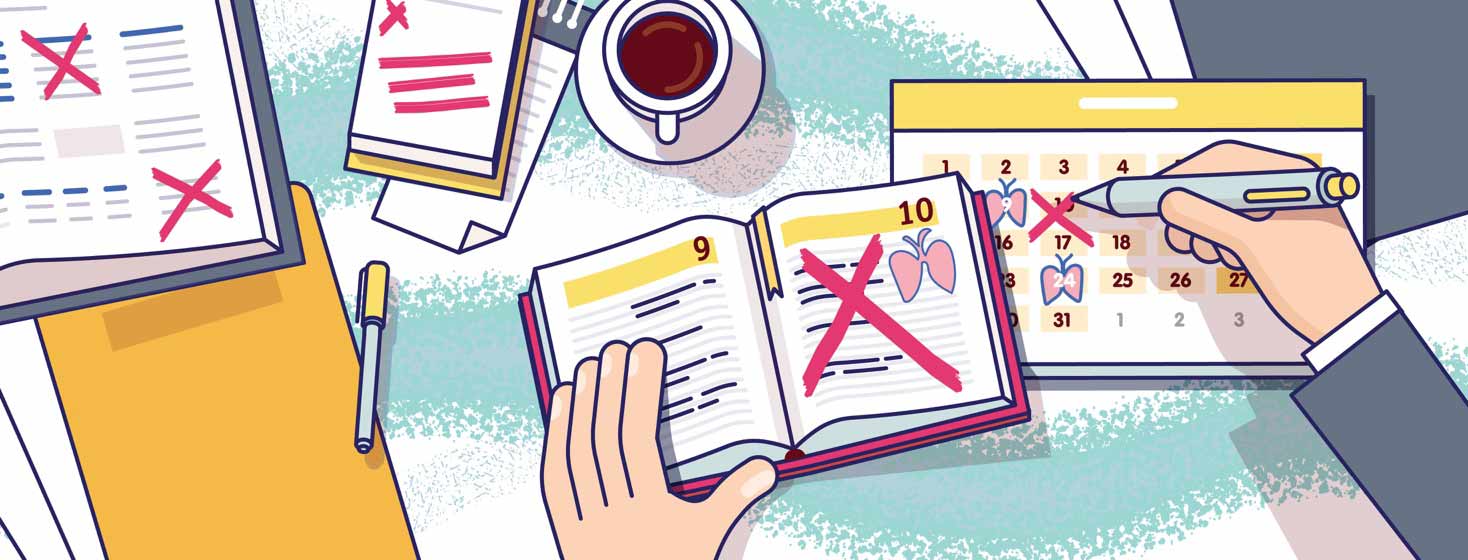IDM and FMLA May Benefit Us Asthmatics
I learned about IDM and FMLA today, and how the combination of these may benefit us asthmatics if we were to miss a lot of time at work due to our asthma. So, what are IDM and FMLA? Here’s what to know:
What is IDM?
It’s an acronym for Integrated Disability Management. It’s an office of workers who help you prepare in case you are disabled due to a medical condition you might have. Basically, the word they use is “proactive.” They help you take proactive steps in case your disease causes you to miss days of work.1
So, I called in sick the other day. It was the third time I missed work due to my asthma in the past six months. My boss encouraged me to call IDM. I said, “What’s IDM?” He sent me a link that defined the term. It’s an office that helps workers file claims for non-occupational absences or accidents.
Going by just that, I called the IDM office and I talked to a lady who explained it in more detail. She said there is a form that would have to be filled out with my doctor. It’s a form filled out if your doctor feels you have a medical condition that might keep you from being able to do your job duties, such as an asthma flare-up that prevents you from missing days of work.
What does the IDM form include?
The IDM form will ask you questions. Examples include:
- How often you are having asthma flare-ups?
- How often is your asthma keeping you from being able to work?
If it’s only one or two times, maybe you don’t need to worry about it. But, if you're seeing a doctor at least twice a year and missing workdays twice a month, that’s something that goes on your record.
Possibility of being fired from work without the IDM form
I never thought of this before, but she said you could be disciplined if you miss too many days of work and could even be fired. But, if you are proactive and fill out the IDM form before this happens, then you are covered and don’t have to worry about being fired because of your asthma. I said, “I hope I don’t ever need it. But, I think I’m in.” She mentioned the acronym FMLA a few times during our discussion. So, I figured I’d set off on a Google search to learn more.
What is FMLA?
It’s an acronym for the Family And Medical Leave Act of 1993.2 I’m not going to go over the entire breadth of the bill. I’m just going to focus on chronic diseases. Basically, the bill makes it so you cannot be disciplined or fired because you miss work due to your chronic medical condition.2 The lady I talked with said asthma is covered under the act.
What does this bill entail?
It requires your employer to give you up to 12 weeks of unpaid leave for any asthma-related absence. This is to allow time for you to recover from a serious asthma-related illness. It also allows up to 12 weeks of unpaid leave if you are a caregiver of someone suffering from a chronic illness. So, if you are a caregiver you can take up to 12 weeks off to care for your sick family member. If your work supplies you with health insurance, they have to continue supplying this while you are absent.
When you are ready to return to work, they must give you your old job back. Or, if your job is filled by someone else, they must give you another job with equal pay to your old job. Any other benefits you received before you got sick must be returned to you upon your return. The law also covers leave of absences for random related days missed due to doctor's appointments, physical therapy, or any other such services that might be needed. Although efforts should be made to do these on days you don’t work.2
Asthma considerations for IDM and FMLA
FMLA only applies to people working for companies of 50 or more employees and are required to see a doctor twice a year to manage your chronic condition. You also have to have a chronic condition that qualifies, such as asthma.2 I meet all of these qualifications.
It's all about being proactive. The lady I talked with said that I am only covered if I proactively fill out the form with my doctor, and are approved. She has seen people lose their jobs due to prolonged absences. If they would have been proactive and worked with IDM, this could have prevented.
Have you or someone you know ever used IDM or FMLA? Share your experience in the comments below.

Join the conversation